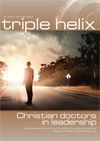Britain has become the first country in the world to offer controversial 'threeparent' fertility treatments to families who want to avoid passing on mitochondrial diseases to their children. The House of Commons approved the measure by 382–128 and the House of Lords by 280–48 on 3 and 24 February respectively.
There are about 50 known mitochondrial diseases (MCDs). They vary in severity, but most presently have no cure and little other than supportive treatment. (1) (2) It is therefore understandable that scientists and affected families want research to go ahead. But there are good reasons for caution.
First, this is not about finding a cure. It is about preventing people with MCD being born. These technologies will do nothing for the thousands of people already suffering from mitochondrial disease or those born with it in future. There are also already alternative legal solutions available for affected couples, including adoption and IVF with egg donation.
Second, safety is far from established. Each technique involves experimental reproductive cloning techniques (cell nuclear transfer) and germline genetic engineering, both highly controversial and potentially dangerous. (3) Any changes or unpredicted genetic problems (mutations) will be passed to future generations.
Third, there are huge ethical issues. The research requires large numbers of human eggs, the 'harvesting' of which is risky and invasive. How many debt-laden students or desperate infertile women will be exploited by being offered money or free IVF treatment in return for their eggs? How many thousands of human embryos will be destroyed? If it ever works, what issues of identity confusion will arise in children with effectively three biological parents?
This debate has not been handled responsibly. The research scientists involved have huge financial, ideological and research-based vested interests. Getting the regulatory changes and research grants to continue and extend their work is dependent on them being able to sell their case to funders, the public and decision-makers. Hence their desire for attention-grabbing media headlines and heart rending (but extreme and unusual) human interest stories. The language of 'changing batteries', 'mitochondrial donation' and 'DNA donation' used to persuade parliamentarians has been both simplistic and misleading. (4)
Two leading lawyers in the Lords debate (Lord Brennan and Baroness Scotland) have suggested that the new procedures are incompatible with European law, making it likely that judicial reviews may delay further the implementation of the new regulations in October. The responsible use of technology, good applied science, is part of good stewardship, but these techniques are unnecessary, unsafe and unethical. (5) This is, in short, bad science.
































